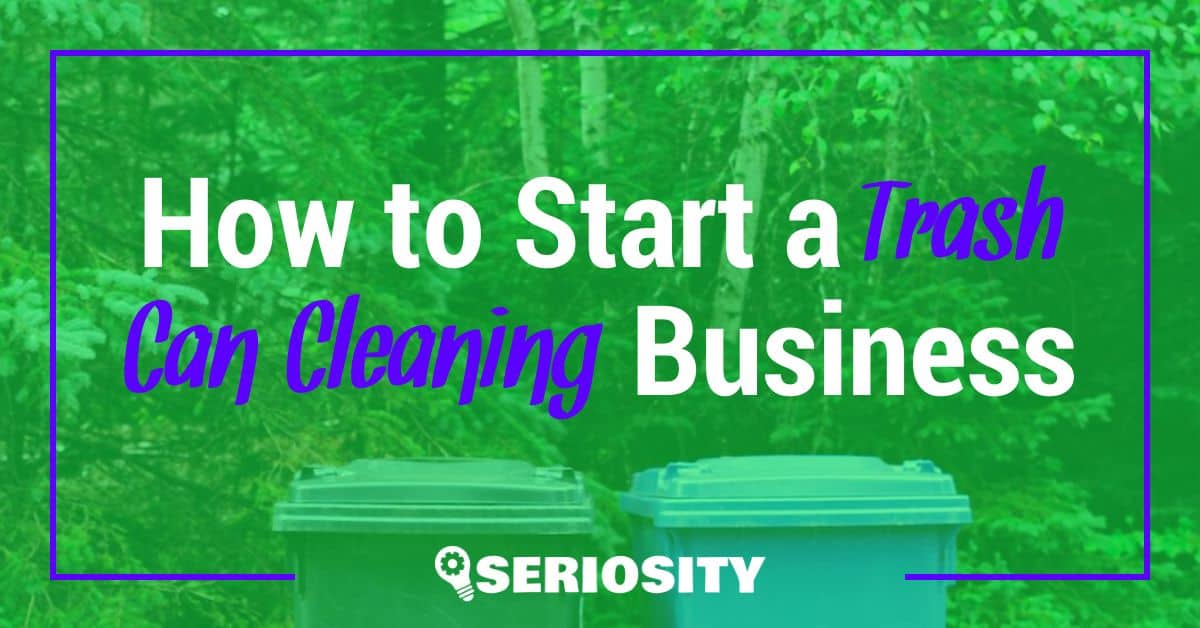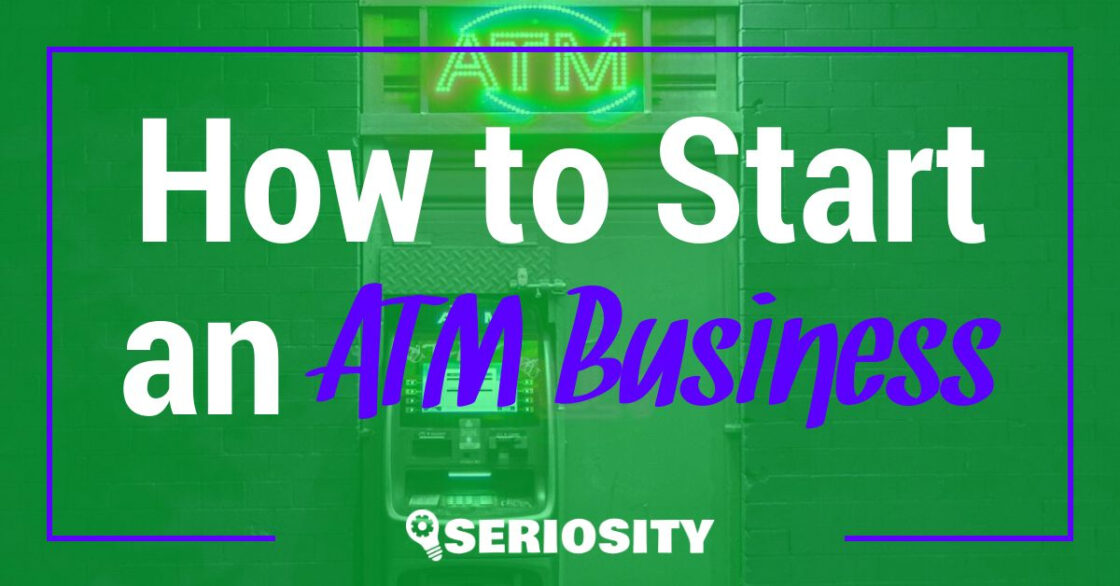Starting a trash can cleaning business can be a lucrative and rewarding venture for those who see the value in providing a much-needed service to homeowners and businesses. With the increasing awareness of hygiene and cleanliness in our communities, trash can cleaning businesses are meeting a growing demand for safe and sanitary waste disposal management. As with any entrepreneurial endeavor, proper planning, research, and strategy are crucial to launching a successful trash can cleaning business.
In this article, we will explore the essential steps to start your own trash can cleaning business, from the initial paperwork and budgeting to equipment acquisition and effective marketing strategies. By following these guidelines, you will be well on your way to creating a thriving and sustainable business in this niche industry. Understanding your target market, optimizing your service locations, and tailoring your work hours to fit your lifestyle are just a few of the tips we will cover as you embark on this exciting new journey.
Understanding Trash Can Cleaning Business
Benefits
The trash can cleaning business provides a valuable service to consumers by maintaining cleanliness, reducing odor, and helping to prevent the growth of harmful bacteria. Additionally, it contributes positively to the environment by reducing the prevalence of pests and diseases. Another advantage of this industry is its potential for profitability, with a demand for regular and ongoing services.
Market Research
It’s important to conduct market research to better understand the market and target customers. Analyzing the local demographic information and understanding customer preferences can help tailor the services to the consumers’ needs. Some key factors to consider include:
- Local population size and density
- Average household income level
- Residential or commercial areas
Identifying service area zone can help you determine the number of potential customers and scope of the business expansion.
Competition
Understanding the competitive landscape is crucial for a successful trash can cleaning business. Identify your competition – local businesses or national franchises, and analyze their services and pricing strategies. Factors to consider when observing competitors:
- Geographic reach
- Services offered and pricing
- Marketing strategies
Evaluating competition will allow you to identify opportunities and develop differentiation strategies to stand out in the market.
Creating a Business Plan and Financing
Budgeting
One of the first steps to starting a trash can cleaning business is to create a detailed business plan. Your business plan should include a thorough and realistic budget that takes into account all aspects of your new venture. This includes startup costs, ongoing expenses, and potential income. You should consider:
- Equipment costs
- Vehicle expenses
- Marketing and advertising
- Staffing and labor expenses
- Insurance and permits
Keep in mind that a well-planned budget can help minimize financial risks and improve your chances of obtaining financing.
Startup Costs
The initial investment required for a trash can cleaning business may vary depending on your location, equipment, and scale of your operation. To give you an idea, some startup costs you may incur include:
| Expense | Cost Estimate |
|---|---|
| Vehicle | $3,500 and up |
| Trailer | $500 and up |
| Trash Bin Cleaning Equipment | $25,000 and up |
| Pressure Washing Equipment | $1,000 and up |
| Website | $500 |
| Marketing | $1,000 |
In addition to these costs, you’ll also need to budget for ongoing expenses, such as gas, maintenance, and employee wages.
Obtaining Financing
Once you have a solid business plan and budget in place, you can begin exploring financing options. You may need a business loan from your local bank, or you might consider other forms of credit, such as a line of credit or a business credit card.
When applying for financing, lenders will want to see a well-prepared business plan and financial projections. They may also evaluate your personal credit history and the potential risk associated with your new business. Make sure to research various financing options to determine which one best fits your needs and circumstances.
Permits and Legal Requirements
Finally, don’t forget to include the cost of permits and any legal requirements associated with starting a trash can cleaning business. This may include registering your business name, obtaining a tax ID number, and securing necessary permits to operate within your jurisdiction. Note that these requirements may vary depending on your location, so be sure to research the specific rules and regulations that apply to your area.
Licenses, Permits, and Legal Requirements
Starting a trash can cleaning business requires several licenses, permits, and legal requirements to ensure compliance with state regulations. Proper documentation will not only protect your business but also help to establish a strong foundation for operations.
To start, apply for a business license from your local city or county agency. A business license permits you to operate a trash can cleaning business within the jurisdiction and guarantees that your activities align with the local ordinances. Be prepared to renew your license regularly, as some jurisdictions require annual or biannual renewals.
Next, consider forming a Limited Liability Company (LLC). Establishing your business as an LLC provides legal protection by separating your personal assets from those of the business. This structure can help safeguard your finances in the event of any legal issues or debts that arise during the course of your business operations. Additionally, an LLC can offer tax benefits and a professional appearance.
A crucial part of establishing your business is obtaining an Employer Identification Number (EIN). An EIN is a unique identification number issued by the Internal Revenue Service (IRS) to identify your business for taxation purposes. This number is essential for filing taxes, opening a bank account, hiring employees, and more.
When starting a trash can cleaning business, you may also require waste facilitation permits or solid waste facility permits, depending on the jurisdiction. Familiarize yourself with the regulations in your area by consulting your local enforcement agency. Remember that permit requirements may differ between states and municipalities, so ensure you comply with all relevant regulations.
In summary, to meet the legal requirements for starting a trash can cleaning business, be sure to:
- Obtain a business license
- Form an LLC (if desired)
- Apply for an EIN
- Acquire any necessary permits for waste facilitation or solid waste facilities
Equipment and Supplies
Specialized Equipment
Starting a trash can cleaning business requires investment in specialized equipment, such as:
- Bin Cleaner: Bin cleaners are designed specifically for trash bin cleaning, and can cost around $100,000 or more. These machines integrate high-pressure water systems and brushes to effectively clean and sanitize trash cans.
- Pressure Washer: A powerful pressure washer with various attachments and nozzles is crucial for effectively cleaning and maintaining bins. Choose a commercial-grade pressure washer for durability and performance.
- Transport: A truck or trailer is needed to transport your equipment to and from cleaning locations. Make sure your vehicle has enough space for your bin cleaner, pressure washer, and other supplies.
- Protective Equipment: Invest in gloves, goggles, and protective clothing to ensure the safety of you and your employees while handling dirty trash cans and cleaning agents.
Cleaning Agents
Using the right cleaning agents is essential for thorough cleaning and sanitization of the trash cans. Here are some important factors to consider:
- Commercial Cleaning Agents: Choose commercial-grade cleaning agents specifically designed for trash cans, ensuring effective removal of tough grime, stains, and odors.
- Eco-friendly Options: To minimize environmental impact, opt for eco-friendly cleaning agents that are non-toxic and biodegradable.
- Antibacterial and Antiviral: Use cleaning agents with antibacterial and antiviral properties to effectively eliminate germs, bacteria, and viruses from the trash cans.
Incorporating the right equipment and supplies in your trash bin cleaning business ensures efficient and thorough results. Making informed investments in specialized equipment, commercial cleaning agents, and protective equipment will set your business up for success in the long run.
Training and Certifications
Before starting a trash can cleaning business, it’s crucial to equip yourself with the necessary knowledge and skills to provide exceptional service to your clients. By investing in training and certifications, you can establish a reputation as a professional, reliable, and trustworthy business owner in the industry.
First and foremost, you should familiarize yourself with the basics of trash can cleaning procedures, equipment, and safety measures. This can be accomplished through online research, attending workshops or seminars, or seeking guidance from fellow business owners in the industry. Although specific formal training courses may not be readily available, look for general training opportunities in cleaning and sanitation to strengthen your knowledge base.
Aside from hands-on experience, obtaining certifications can showcase your professionalism and enhance your credibility. There are several certifications relevant to a trash can cleaning business, such as:
- Cleaning Management Institute’s (CMI) Certification: CMI offers various certifications, including the Custodial Technician Training Program, which teaches essential knowledge, skills, and work practices required in the cleaning industry.
- International Janitorial Cleaning Services Association (IJCSA) Certification: IJCSA offers a range of certifications specific to different areas of cleaning services, including green cleaning, mold inspection and remediation, and carpet cleaning.
- Occupational Safety and Health Administration (OSHA) Training: OSHA regulates workplace safety standards, and completing OSHA-approved training can demonstrate your commitment to implementing and maintaining a safe work environment.
- Environmental Protection Agency (EPA) Certification: Obtaining an EPA certification helps ensure that you follow environmentally responsible practices when using cleaning equipment and disposal techniques.
To recap, investing in training and certifications will not only improve your skills as a trash can cleaning business owner but also showcase your professionalism, reliability, and dedication to quality service. Exploring a variety of training opportunities and obtaining relevant certifications will help you establish a solid foundation in the industry and set your business up for success.
Marketing and Advertising
Website
A well-designed website is essential for your trash can cleaning business. It should showcase your services, prices, and areas served. Make sure it is easy to navigate and user-friendly, with clear calls-to-action for customers to request services or ask questions. Additionally, consider including customer reviews and testimonials as social proof of your excellent service.
Social Media
Social media platforms are great for marketing and advertising your trash can cleaning business. Use platforms like Facebook, Twitter, and Instagram to engage with your target audience and showcase your services. Share engaging content, such as before and after cleaning photos, and use hashtags related to your service area to grow visibility.
Tips for social media marketing:
- Share special offers and discounts for first-time customers
- Create a posting schedule to maintain consistency
- Encourage customers to share reviews or tag your business in their posts
Word of Mouth
Word of mouth is one of the most effective ways to grow your trash can cleaning business. Encourage your satisfied customers to spread the word about your services by:
- Asking for referrals from existing clients
- Offering incentives or discounts for client referrals
- Networking with residential associations or businesses to promote your services
Additional Advertising Strategies
- Design and distribute posters and flyers in your service area, highlighting the benefits of trash can cleaning and any promotions you have available
- Place ads in local newspapers or online directories to expand your reach in the community
- Collaborate with other businesses, such as property management companies or waste collection services, to cross-promote your services
By employing a combination of these marketing and advertising strategies, you will significantly increase the visibility of your trash can cleaning business while highlighting your commitment to providing quality services.
Pricing and Services
Setting Rates
When starting a trash can cleaning business, it’s essential to establish a pricing structure for the services you’ll be offering. To set competitive and profitable rates, conduct market research and analyze your competitors’ prices.
Typically, trash can cleaning businesses offer one-time cleaning fees and subscription-based options. For example, a one-time cleaning fee for one bin may range from $20-$35, depending on the market and competition. Subscription plans, on the other hand, can provide monthly or bi-monthly cleaning services. Monthly services often range from $8-$12 per can, while bi-monthly services average $12-$15 per can.
Flat Rate vs. Square Footage
When setting your rates, consider if you want to offer a flat rate per can or base your fees on the size of the trash cans (i.e., square footage). Flat rates are easier for customers to understand and can simplify your pricing structure. However, charging based on square footage allows you to charge more for larger trash cans, potentially increasing your profit margins.
Consider the following example for a flat rate pricing structure:
- One-time cleaning fee: $25 per trash can
- Monthly service: $10 per trash can
- Bi-monthly service: $14 per trash can
Alternatively, the pricing structure based on square footage might look like this:
- One-time cleaning fee: $0.15 per square foot of trash can
- Monthly service: $0.05 per square foot of trash can
- Bi-monthly service: $0.07 per square foot of trash can
Regardless of the pricing method you choose, ensure that your prices cover your equipment, labor, and operational costs while remaining competitive in your market.
Attracting and Retaining Customers
Residential Customers
Focusing on residential customers is a vital aspect of starting and maintaining a successful trash can cleaning business. To attract potential customers, it’s essential to offer targeted marketing in local newspapers, on social media platforms, and even by distributing flyers in the area.
- Offer one-time cleanings, as well as recurring contracts, to cater to different needs
- Use promotions such as free trials, referrals, and coupons to encourage new clients
- Make sure your customer service is exceptional – be courteous, flexible, and responsive to inquiries
Building a strong customer base starts with establishing trust with your residential clients. By providing quality service and maintaining open communication, you increase the likelihood of turning one-time users into repeat customers.
Apartment Buildings
When targeting apartment buildings, it’s crucial to approach building management and offer special deals, catered to their specific needs.
- Collaborate with building management to offer carefully planned, attractive cleaning packages for their residents
- Offer possible discounts on group bookings to entice more residents to try your service
Additionally, consider the following marketing tactics to attract apartment building customers:
- Set up an informative Google business listing – this is where people are likely to search for your services
- Utilize search engine optimization (SEO) strategies to rank higher in search results
- Organize local community events to demonstrate the benefits of a clean and well-maintained trash area
By focusing on both residential customers and apartment buildings, you can expand your trash can cleaning service’s customer base and ensure a steady flow of new and repeat clients. Remember, quality service and effective communication are the keys to attracting potential customers and fostering long-term client relationships.
Expanding Your Business
Employees
Hiring employees is a critical step in expanding your trash can cleaning business. As a business owner, you must ensure you have the right personnel in place to handle increasing workloads and maintain a high level of service quality. To hire employees, you will need to obtain an Employer Identification Number (EIN) from the IRS. This allows you to manage payroll and taxes for your staff.
When hiring, consider the target market and specific needs of your business. Seek out individuals with relevant experience in the cleaning industry, as well as those who display strong work ethics, good communication skills, and attention to detail. Don’t forget to invest in their training and development to improve efficiency and productivity.
To handle increased transportation requirements and streamline daily operations, it may also be necessary to acquire additional cleaning vehicles and equipment (e.g., mops) as your team grows.
Additional Revenue Streams
As you expand your trash can cleaning business, it is crucial to explore additional revenue streams to sustain growth and cover operating costs. Some ideas for expanding your service offerings include:
- Residential and Commercial Cleaning: Diversify your customer base by offering cleaning services to both residential and commercial clients. This can include power washing building exteriors, driveways, and sidewalks.
- Recycling Services: Collaborate with local recycling centers to bring added convenience to your customers, as well as generating additional income for your business.
- Seasonal Services: Cater to clients’ needs by offering seasonal cleaning services, such as gutter cleaning, leaf removal, or snow plowing, depending on your location.
- Upselling and Bundling: Create value-added packages that incorporate multiple services or products (e.g., sanitizing treatments or deodorizing sprays) to increase revenue and appeal to a wide range of customers.
By considering employees, transportation, and additional revenue streams, you can take strategic steps to expand your trash can cleaning business and capitalize on your growing reputation in the market.





